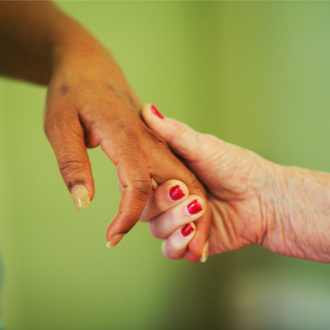Update: GPs face criminal charges for ‘wilful neglect’

GPs are being caught up in the post-Francis fervour over patient safety. Competent doctors could face police investigations on a charge of ‘wilful neglect’ if the Department of Health succeeds in pushing its proposals through Parliament.
Currently, there is a range of regulations that can be used to investigate GPs who are accused of providing poor care, including GMC investigations, withholding of CQC registration or Health and Safety Executive powers.
However, under the terms of the proposed legislation, health professionals could be subject to criminal sanctions for the care they provide.
‘the Government plans to introduce a charge of ‘general offence of wilful or reckless neglect or mistreatment’
In the wake of the failings identified in last year’s Francis Report on the scandal at the Mid Staffordshire NHS Foundation Trust, the Government plans to introduce a charge of ‘general offence of wilful or reckless neglect or mistreatment’, which applies where the ‘individual or organisation wilfully neglects or ill-treats someone in a way that causes serious harm or death’.
No deterrent
Medical defence organisations say this would allow patients to bring charges against GPs if there were problems with their treatment – even when the GP has provided appropriate clinical care.
Dr Michael Devlin, head of professional standards and liaison at the Medical Defence Union, says: ‘A new criminal sanction for wilful neglect is likely to increase the number of GPs investigated, though very few, if any, would be found guilty of something as serious as wilful neglect. Such investigations last many months, if not years, even if ultimately no sanction is imposed. It is difficult to see how this would act as a deterrent or further protect patients.’
Dr Devlin says GPs could face charges for prioritising one urgent case over another, failing to spot a case of meningitis when there was little cause for concern, or even when a frail patient refuses to take up their recommendation for a hospital referral.
‘Whichever one you see first, the other would have to wait and could claim wilful neglect’
-Dr Nick Clements
Flaws
The Medical Protection Society has also come out in opposition to the proposals, saying it is not sufficiently thought through and some of the arguments are inconsistent. Dr Nick Clements, head of medical services at the MPS, says the law as proposed could result in a GP being prosecuted if two patients had arrived at the surgery at the same time, both saying their needs were urgent.
‘Whichever one you see first, the other would have to wait and could claim wilful neglect,’ he says.
The proposals were suggested by an advisory group on patient safety chaired by Professor Don Berwick, and the Government has committed to introducing legislation in England as soon as parliamentary time allows.
The DH consultation – which has now closed – says there are criminal offences already for the ill-treatment of children or adults who lack full capacity. However, it adds: ‘There is no equivalent specific offence in relation to adults with full capacity. The National Advisory Group… took the view that there is a role for this new offence.’
Dr Richard van Mellaerts, a GPC member and a GP in Kingston, south-west London, says the move will not benefit patients.
He says: ‘There have been concerns for years over defensive medicine. Criminalising wilful neglect as proposed could exacerbate that. Having doctors in a perpetual state of anxiety won’t necessarily work to the benefit of patients.’
He adds: ‘We’re concerned that the proposals don’t specifically give an exemption for doctors exercising clinical judgment. Doctors have to make difficult decisions on a daily basis, and to have a threat of prosecution or jail at the back of your mind would be quite unsettling.’
Analysis: When GPs could be caught by the proposed legislation
There are many situations where GPs could be in danger of being prosecuted under this new law. Take the case of a child being seen by a GP for a high temperature and lethargy. After examining the patient, the GP may have found nothing of concern and advised the parents to keep an eye on the child and to contact the surgery again if his condition worsens. But 10 hours later that child is admitted to hospital with meningitis and suffers brain damage.
The (understandably distressed) parents may approach the police and seek to blame the GP for not having picked up the infection, alleging the GP was rushed and offhand and did not care whether the child was in need of medical treatment or not.
Another example could be where a GP examines an elderly patient in a care home who has become frail and lost weight. He/she recommends further investigations and a hospital referral. The patient, who is competent and able to make decisions, refuses investigations and hospitalisation and becomes increasingly frail. Her relatives may believe those providing care have been negligent, and complain to the police.
Again, this situation would put the GP at risk of criminal investigation.
Pulse July survey
Take our July 2025 survey to potentially win £1.000 worth of tokens












